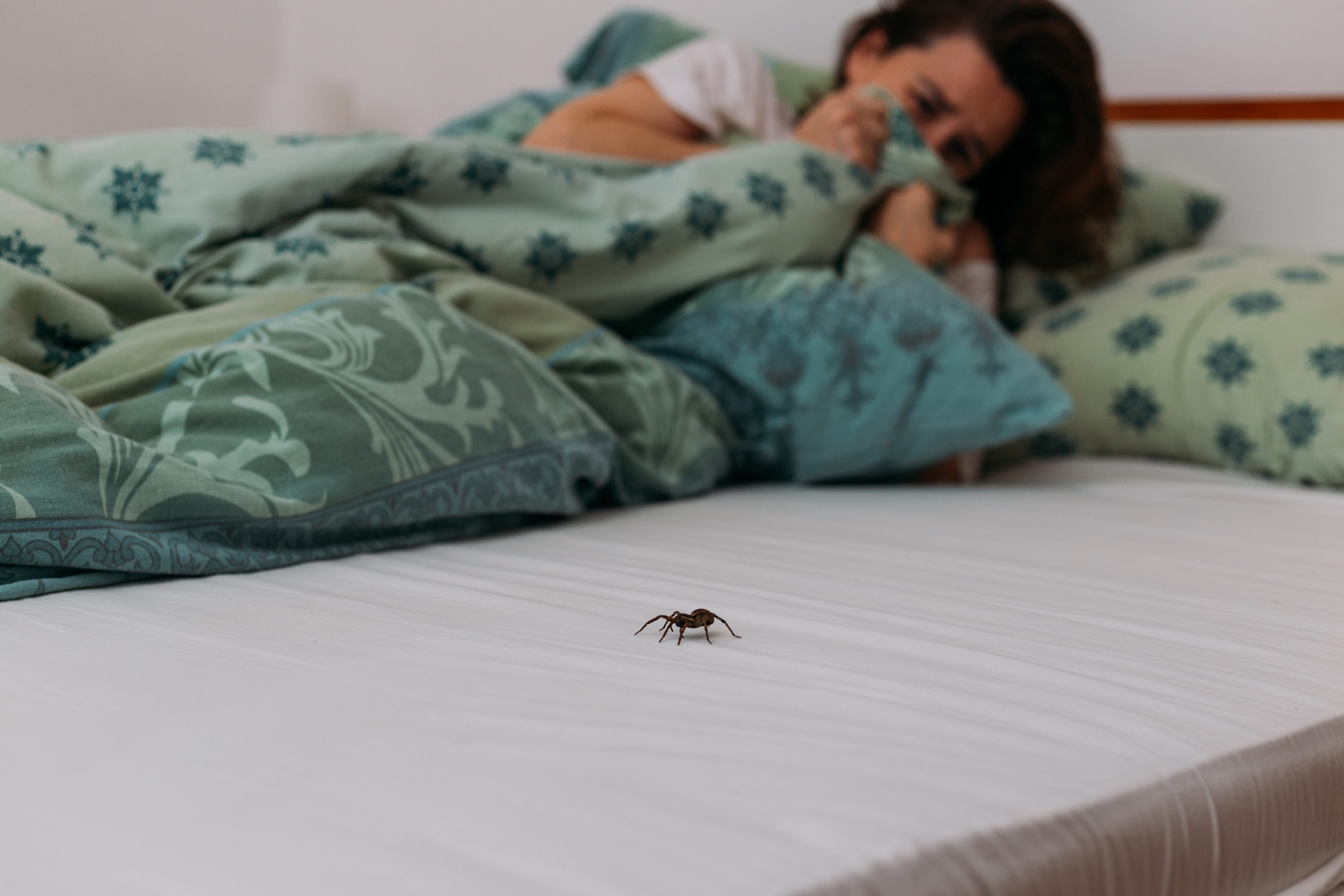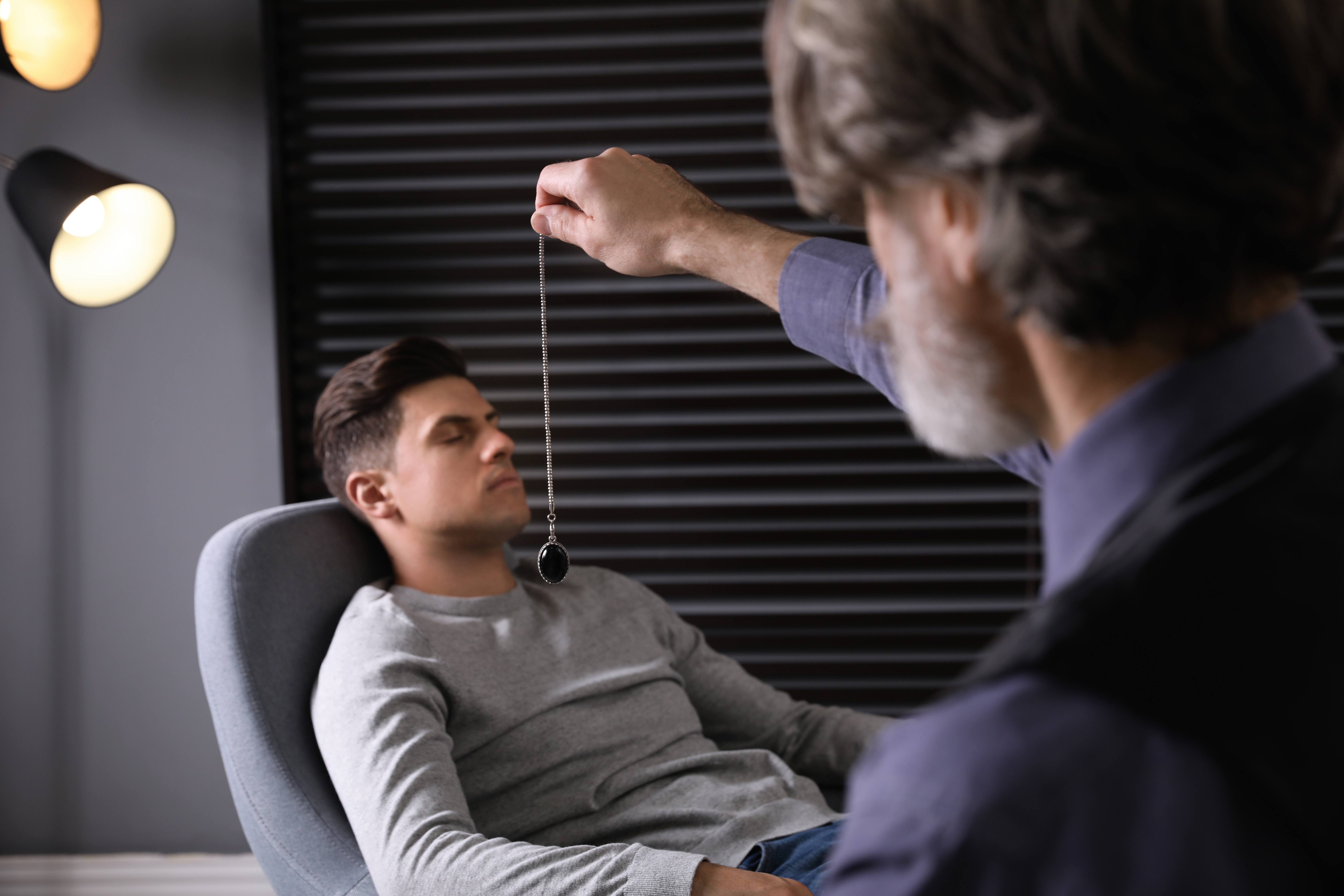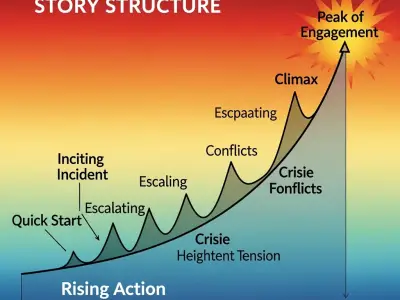Imagine being able to face your fears and phobias calmly and confidently. This is where hypnotherapy comes into play, offering a pathway to overcoming these deep-seated anxieties. In this blog, we'll explore how hypnotherapy can be a powerful tool in managing and treating various phobias.
Jump to:
- Understanding Phobias
- Hypnotherapy: A Brief Overview
- Does Hypnosis Work for Phobias?
- How Hypnotherapy Helps Treat Phobias
- Hypnotherapy for Fear of Flying
- Hypnotherapy for Needle Phobias
- Hypnotherapy for Driving Anxiety
- Hypnotherapy for Social Anxiety
- Hypnotherapy for Fear of Heights
- Hypnotherapy for Emetophobia
- Hypnotherapy for Animal Phobias
- Hypnotherapy as a Complement to Other Treatments
- The Process of Hypnotherapy
- Is Hypnosis Available on the NHS?
Understanding Phobias
Before delving into hypnotherapy, it's important to understand what phobias are. A phobia is an intense, irrational fear of specific situations, objects, or activities. This fear is deep-rooted, often stemming from past experiences or inherent anxieties. It's a powerful fear that can disrupt daily life, making ordinary tasks seem daunting or even impossible.
Phobias can vary widely, from common fears like heights or flying to more specific anxieties like fear of certain animals or medical procedures. The impact of a phobia can range from mild inconvenience to severe disruption in personal and professional life.
Hypnotherapy: A Brief Overview
Hypnotherapy involves guiding someone into a state of focused attention and increased suggestibility. In this relaxed state, the hypnotherapist can work with you to explore the roots of your phobia and suggest ways to change your perception and response to the feared object or situation.
Does Hypnosis Work for Phobias?
Many find hypnotherapy effective for phobias. It works by rewiring your brain's response to fear, helping you react more calmly and rationally. It's not a magic solution but a tool to empower you in facing your fears.
How Hypnotherapy Helps Treat Phobias
So, how does hypnotherapy work to treat phobias?
- Inducing Relaxation: Hypnotherapy begins by bringing people into a state of deep relaxation. In this state, the mind becomes more receptive to positive suggestions and new ways of thinking.
- Addressing the Root Cause: A skilled hypnotherapist works to uncover the underlying causes of your phobia. This may involve exploring past experiences or subconscious beliefs that fuel your anxiety.
- Reframing Negative Thoughts: Through hypnosis, unhelpful and fearful thoughts about your phobia are identified and gently challenged. The therapist helps you reframe these thoughts into more positive and rational ones.
- Visualisation Techniques: You might be guided to visualise a successful and calm experience with your phobia. These mental rehearsals can help build confidence and reduce anxiety about actual experiences.
- Building Coping Strategies: Hypnotherapy equips you with coping mechanisms to manage anxiety. These strategies can be used in triggering situations to maintain calmness and control.
Common Phobias and Hypnotherapy
Let’s look at some common phobias and how hypnotherapy can help treat them:
Hypnotherapy for Fear of Flying

Fear of flying is a common phobia. Also known as aviophobia, it affects many people, causing significant distress and limiting their ability to travel. Hypnotherapy offers a promising approach to overcoming this fear, enabling individuals to travel easily and comfortably.
Understanding Fear of Flying
The fear of flying stems from many factors, such as fear of heights (acrophobia), fear of enclosed spaces (claustrophobia), or anxiety over possible disasters. For some, this fear might be linked to a lack of control in a flying situation or even from a traumatic experience.
Effectiveness of Hypnotherapy for Flying Fear
While individual experiences vary, many report significant improvements in their fear of flying after hypnotherapy. It often leads to reduced anxiety, a more relaxed attitude towards flying, and, in many cases, the ability to travel by air without excessive stress.
Fear of Flying Hypnosis Success Stories
Numerous anecdotes and case studies show people overcoming their fear of flying through hypnotherapy. These success stories serve as a testament to the potential effectiveness of this therapeutic approach.
Hypnotherapy for Needle Phobias

Needle phobia, also known as trypanophobia, is a common fear that can turn routine medical procedures into experiences of extreme stress and anxiety. Hypnotherapy offers a beneficial approach to managing this fear, aiming to make encounters with needles far less daunting.
The Impact of Needle Phobias
The fear of needles can affect people in various ways, ranging from mild anxiety to severe panic attacks. It can lead to avoidance of necessary medical treatments, vaccinations, or blood tests, impacting health and wellbeing.
Success Stories in Overcoming Needle Phobias
Many people have found hypnotherapy effective in reducing their fear of needles. Success stories often include undergoing vaccinations or blood tests with significantly less anxiety.
Hypnotherapy for Driving Anxiety

Driving anxiety is a common issue that can impact someone’s independence and quality of life. For those who experience this anxiety, the mere thought of getting behind the wheel can be daunting. Hypnotherapy offers a promising approach to managing and overcoming this anxiety, helping individuals regain confidence in their driving abilities.
Understanding Driving Anxiety
Driving anxiety can stem from various sources, such as traumatic experiences like car accidents, fear of losing control while driving, or general anxiety disorders. This fear can manifest in different ways, including panic attacks, avoidance of driving, or extreme stress in specific driving situations like motorways or busy city centres.
Effectiveness of Hypnotherapy for Driving Anxiety
Many individuals have successfully overcome their driving anxiety through hypnotherapy. These success stories highlight the potential of hypnotherapy to transform a person’s approach to driving, turning a source of fear into a routine part of life.
Hypnotherapy for Social Anxiety

Social anxiety is a condition where social interactions cause irrational anxiety, fear, self-consciousness, and embarrassment. For those who suffer from it, even a simple social gathering can feel overwhelming. Hypnotherapy emerges as a gentle yet powerful tool to treat social anxiety, helping people navigate social environments with greater ease and confidence.
Understanding Social Anxiety
Social anxiety goes beyond typical shyness. It's a persistent fear of being watched, judged, or embarrassed in social situations. This can lead to avoidance of social interactions, impacting personal and professional relationships.
Effectiveness of Hypnotherapy for Social Anxiety
There are numerous accounts of people who have successfully managed their social anxiety through hypnotherapy. These stories often highlight a renewed sense of freedom and the ability to engage in social activities they previously avoided.
Hypnotherapy for Fear of Heights

A Fear of heights, or acrophobia, is a common phobia that can limit a person's experiences and activities. It's an intense fear that can cause significant anxiety and panic. Hypnotherapy offers a valuable approach to address and manage this fear, helping people to gradually alter their reactions to heights and make such situations less intimidating.
Understanding Acrophobia
Acrophobia involves a fear of heights that is excessive and irrational. It can manifest in various ways, from avoiding tall buildings and scenic overlooks to feeling intense anxiety or experiencing physical symptoms like dizziness or nausea when high up.
Effectiveness of Hypnotherapy for Acrophobia
Many people have found hypnotherapy helpful in reducing or overcoming their fear of heights. It's a process that involves managing the symptoms while addressing the root causes of the fear.
Hypnotherapy for Acrophobia Success Stories
There are numerous accounts of people who, through hypnotherapy, have been able to change their experiences with heights from ones of fear and avoidance to handling such situations with composure and confidence.
Hypnotherapy for Emetophobia

Emetophobia, the fear of vomiting, is a specific phobia that may extend from the act of vomiting to seeing others vomit, feeling nauseous, or being in situations where vomiting could occur. Hypnotherapy offers a supportive and effective approach to managing and potentially overcoming this challenging phobia.
The Challenges of Emetophobia
Those with emetophobia often go to great lengths to avoid vomiting or being around others who may be ill. This fear can lead to restrictive behaviours, such as avoiding certain foods, social situations, or medical procedures. The anxiety associated with this phobia can be debilitating, affecting daily functioning and quality of life.
Effectiveness of Hypnotherapy for Emetophobia
Many people with emetophobia have found relief through hypnotherapy. It is often praised for its ability to address both the symptoms and the root cause of the fear, leading to lasting changes in how people respond to the thought or possibility of vomiting.
Hypnotherapy for Animal Phobias

Animal phobias, such as arachnophobia (fear of spiders) or ophidiophobia (fear of snakes), are common fears that many people face. These phobias can cause significant distress and may limit a person's activities or lifestyle. Hypnotherapy is an effective tool in managing these fears, working to desensitise your response to animals and making encounters with them less frightening.
Understanding Animal Phobias
Animal phobias often involve an intense, irrational fear of a specific animal or group of animals. This fear can be triggered by direct encounters, pictures, or even thoughts of the animal. The response is usually automatic and can include symptoms like panic attacks, rapid heartbeat, and extreme avoidance behaviours.
The Effectiveness of Hypnotherapy for Animal Phobias
Many people have successfully managed and even overcome their animal phobias through hypnotherapy. By addressing the fear at its subconscious root, hypnotherapy can lead to lasting changes in how people react to animals.
Hypnotherapy as a Complement to Other Treatments
When treating phobias, a multi-faceted approach can often be the most effective. Hypnotherapy, known for its benefits in addressing various phobias, can be an excellent complement to other treatments like cognitive-behavioural therapy (CBT) or medication. This integrative approach can enhance the overall effectiveness of phobia treatment, offering a more holistic solution.
Hypnotherapy and CBT
- CBT and Understanding the Fear: Cognitive-behavioural therapy focuses on understanding the thought patterns and beliefs that contribute to the phobia. It involves learning to identify and challenge irrational fears and replace them with more rational, balanced thoughts.
- Hypnotherapy for Deep-seated Emotions: Hypnotherapy works on a deeper, subconscious level. It can access and address deep-seated emotional responses and beliefs that might be difficult to reach with CBT alone.
- Combined Strengths: While CBT works on the conscious level of thought processes and behaviours, hypnotherapy complements it by working on the subconscious, emotional responses. Together, they offer a comprehensive approach, tackling the phobia from both conscious and subconscious angles.
Hypnotherapy and Medication
- Medication for Immediate Relief: In some cases, medication might be prescribed for immediate relief from intense phobia symptoms. These medications typically help manage anxiety and panic attacks.
- Hypnotherapy for Long-Term Change: Hypnotherapy can be used alongside medication to work on long-term behavioural and emotional changes. While medication addresses the symptoms, hypnotherapy aims to resolve the underlying causes of the phobia.
- A Balanced Approach: Using hypnotherapy with medication can provide a balanced approach. Medication can help manage acute symptoms, making it easier to engage in hypnotherapy sessions effectively.

The Process of Hypnotherapy
Perhaps you’ve booked your first hypnotherapy session and are wondering what will happen. Let’s talk through the steps to get you prepared:
1. Initial Consultation
Your journey begins with understanding your specific phobia and history. This information helps tailor the hypnotherapy sessions to your needs.
2. Hypnotherapy Sessions
During sessions, you'll be guided into a relaxed state. The therapist then uses various techniques to address your phobia, such as visualisation or positive affirmations.
3. Aftercare and Self-Hypnosis
Post-session, you may be given exercises or self-hypnosis techniques to reinforce the learnings and continue your progress.
Is Hypnosis Available on the NHS?
In some cases, the NHS may offer hypnotherapy for certain conditions. However, availability varies, and private options are also widely accessible.
Recommended for you!
Best SellersUnlock the Power of the Mind with Centre of Excellence
If you're captivated by the transformative potential of hypnotherapy, we invite you to join our Hypnotherapy Practitioner Diploma Course. This comprehensive course offers insights and practical skills to help others overcome their phobias.
What You'll Learn:
- Foundational Knowledge of Hypnotherapy: Gain an in-depth understanding of the principles and practices of hypnotherapy, exploring how it can effectively address various phobias.
- Skills to Transform Lives: Learn techniques to guide others through their fears and anxieties, empowering them with the tools to manage and overcome their phobias.
- Broaden Your Therapeutic Horizons: Enhance your appreciation for this therapeutic approach, developing a new perspective on its application in modern psychological wellness.
Special Offer for Our Readers:
We are delighted to offer our Hypnotherapy Practitioner Diploma Course for the exclusive price of £29, significantly saving from the standard price.












